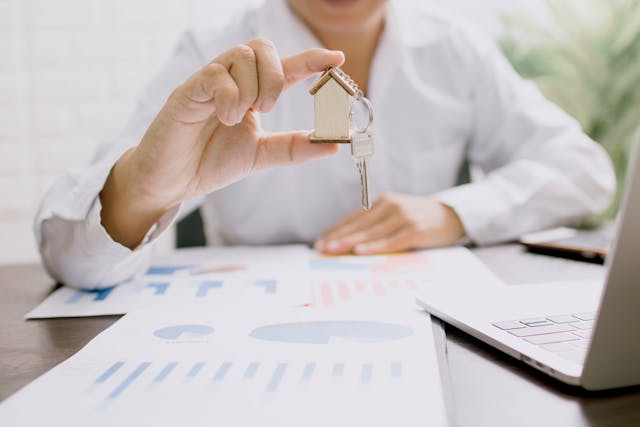Commercial real estate is one of the most significant investments businesses and property owners can make. Office towers, retail centers, warehouses, and mixed-use properties represent not only financial assets but also spaces where people work, shop, and connect. Yet even the most attractive building can lose value quickly if pests are left unchecked. Rodents, insects, and other unwanted intruders threaten property condition, tenant satisfaction, and long-term returns. For brokers, investors, and managers alike, pest control is not a side issue—it is a critical factor in protecting property value and securing successful deals.
Pest Problems as a Hidden Risk Factor
In commercial real estate, visible issues like structural damage or outdated facilities are easy to identify. Pest problems, however, often remain hidden until they become severe. Infestations can undermine the appeal of a property, disrupt tenant operations, and even halt transactions if inspections reveal concerns.
For brokers, understanding this hidden risk is crucial. Buyers and tenants are increasingly cautious about long-term liabilities, and an overlooked pest issue can jeopardize trust. Addressing pest control proactively signals that a property is well maintained and reduces the likelihood of unpleasant surprises during negotiations.
The Impact on Tenant Satisfaction and Retention
Tenant satisfaction is a cornerstone of commercial real estate success. Businesses expect clean, safe environments where employees and customers feel comfortable. Pests undermine this expectation quickly. An office dealing with rodents or a retail space battling cockroaches will struggle to retain tenants, no matter how competitive the lease terms.
Long-term tenant relationships are vital for brokers and property owners, as turnover leads to lost income and higher costs. Regular pest control not only prevents disruptions but also reinforces a reputation for professionalism. When tenants know their concerns are taken seriously, they are far more likely to renew leases and recommend the property to others.
Health, Safety, and Compliance Concerns
Beyond inconvenience, pests introduce serious health and safety risks. Rodents and insects can spread bacteria, contaminate food, and damage wiring or insulation. In commercial spaces like restaurants or warehouses, these risks extend to compliance with health codes and industry regulations. A pest problem in such environments can result in fines, closures, or lawsuits—issues that directly impact property value.
For brokers, properties with strong pest management programs represent lower risk to buyers and tenants. They provide assurance that the building is not only attractive but also safe and compliant. This reassurance can make properties more marketable and negotiations smoother.
Property Damage and Financial Costs
The physical damage caused by pests can be extensive. Termites compromise structural integrity, rodents chew through electrical systems, and birds damage rooftops and HVAC units. These issues lead to costly repairs and reduce the overall value of the property.

Preventive pest control is far more cost-effective than repairing damage after the fact. Regular inspections and treatments protect investments by reducing the likelihood of long-term deterioration. For brokers, being able to point to a property’s proactive maintenance record can become a selling point in competitive markets.
Enhancing Marketability Through Preventive Care
Commercial real estate brokerage is about more than connecting buyers and sellers—it’s about positioning properties as attractive, secure, and valuable assets. Pest control plays directly into this positioning. Properties with visible preventive care, documented maintenance, and a clean record are far easier to market to discerning investors and tenants.
Preventive care is not only about avoiding problems; it is about demonstrating foresight. A property that shows evidence of proactive pest management conveys to potential buyers that the owner values long-term stability. In the same way that landscaping or building upgrades increase curb appeal, pest-free conditions enhance marketability by projecting professionalism.
Brokers as Advisors on Risk Management
Brokers are not only transaction facilitators—they are advisors who guide clients toward smart investments. Being able to address pest control as part of property evaluations adds value to this advisory role. By highlighting risks and recommending solutions, brokers help clients make informed decisions that protect their financial interests.
This perspective also builds trust. Clients recognize brokers who take a comprehensive approach, considering factors beyond location and square footage. By incorporating pest management into discussions, brokers show that they understand the full picture of property value and long-term potential.
The Role of Professional Pest Management
While property owners may attempt quick fixes, commercial pest control requires professional expertise. Large facilities, multiple tenants, and diverse environments create complex challenges that demand specialized knowledge. Professional pest management services provide inspections, tailored treatment plans, and preventive strategies that go beyond surface-level solutions.
For brokers and property managers, partnering with pest professionals adds credibility. Documentation of regular service demonstrates to buyers and tenants that the property is cared for in a thorough and consistent way. It also provides peace of mind, knowing that experts are addressing issues before they escalate.
Long-Term Value and Reputation
Commercial real estate is not just about immediate transactions—it is about long-term value and reputation. A property with a history of pest problems may carry a stigma that affects future negotiations, even if the issues are resolved. Conversely, a property known for consistent cleanliness and proactive care builds a reputation that attracts tenants and buyers alike.
This reputation extends to brokers as well. Those who prioritize pest control in their property assessments position themselves as professionals who protect client interests. Over time, this strengthens relationships, enhances credibility, and creates opportunities for repeat business.
Conclusion: Protecting Assets Through Pest Control
Commercial real estate depends on maintaining property value, tenant satisfaction, and long-term returns. Pest control is a critical factor in achieving all three. Infestations threaten health, safety, and reputation while driving up costs and undermining trust. Preventive management, on the other hand, protects assets, enhances marketability, and reassures tenants and buyers.
For brokers, recognizing the role of pest control is part of offering comprehensive service. By advising clients on prevention, maintenance, and professional management, brokers ensure that properties remain strong investments. In a competitive market, pest-free spaces aren’t just cleaner—they are more valuable, more marketable, and more secure for the future.
